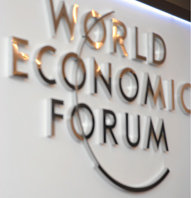A call from the World Economic Forum (WEF) for greater public-private partnership against cybercrime has been backed by Interpol, the international police body.
Unveiled in Davos by Jean-Luc Vez, WEF’s Head of Public Security Policy and Security Affairs, Interpol Secretary General Jürgen Stock, US Attorney General Loretta Lynch and Eugene Kaspersky, Chairman and CEO of IT security product company Kaspersky Lab, the initiative proposes a unified approach between law enforcement and business for better detecting, preventing and more efficiently combating cybercrime.
Highlighted by the WEF’s ‘Recommendations for Public-Private Partnership against Cybercrime’ is the need for information-sharing and cooperation between business and law enforcers, with the Interpol Global Complex for Innovation (IGCI) in Singapore recognized as such a model.
Working alongside police in the IGCI’s Cyber Fusion Centre are specialists from cyber security and academia, providing expertise across cyber threat intelligence and malware analysis, mobile forensics in addition to research into the visualization of cyber threats and attack attribution.
Jürgen Stock said: “Policing, especially in cyberspace, is no longer the exclusive preserve of law enforcement. The private sector, academia, and citizens themselves all need to be involved. The Internet of things presents unprecedented opportunities for criminals, and for effective law enforcement getting perpetrators behind bars should be an integral part of any strategy. Combating cybercrime requires a unified approach, not just in developing partnerships but in ensuring that police around the world are provided with the basic equipment and training they need.”
The WEF highlighted the role played by Interpol in assisting police across its 190 member countries to identify and share intelligence leads, bridge information gaps and disrupt the organized networks behind a range of cybercrime which are often interlinked.
In 2015, cooperation between law enforcement, industry and government supported by Interpol led to the take down of the Simda and Dorkbot botnets which were estimated to have infected some 1.75 million computers worldwide. And Interpol’s Cyber Research Lab has also created its own private Darknet network, private crypto-currency and simulated marketplace, recreating the virtual ‘underground’, used by criminals, as a training tool to support police investigations.










